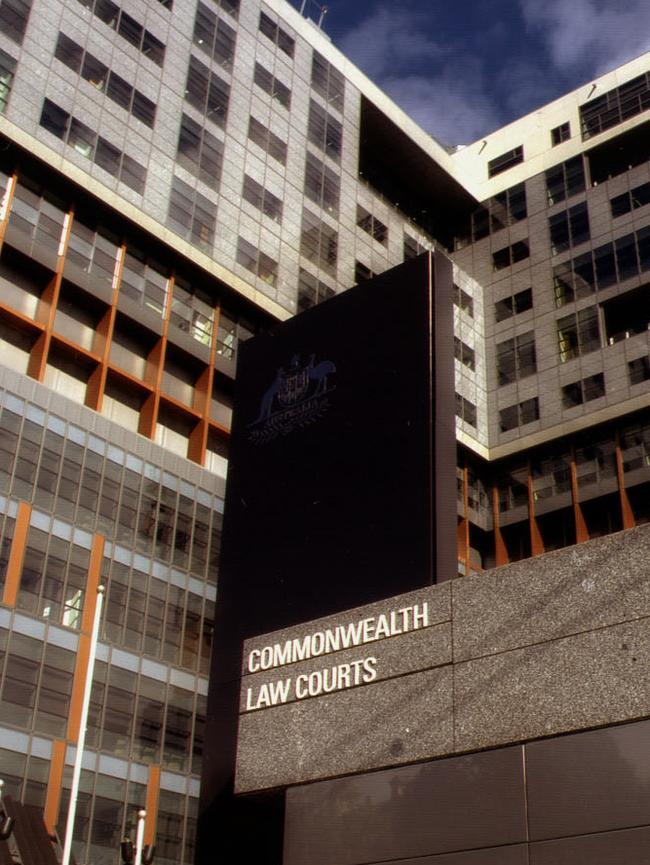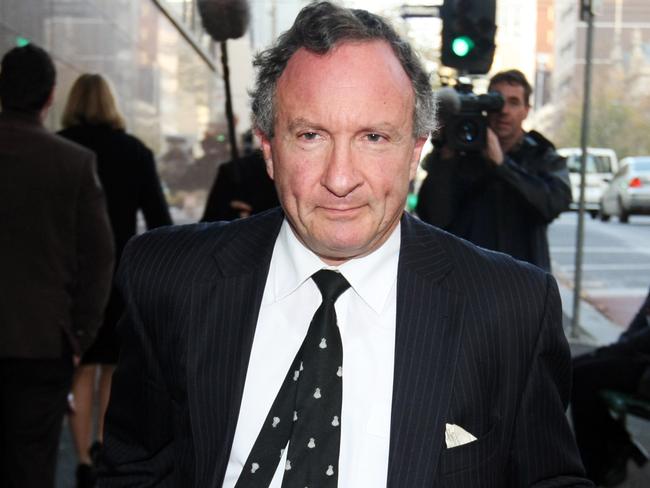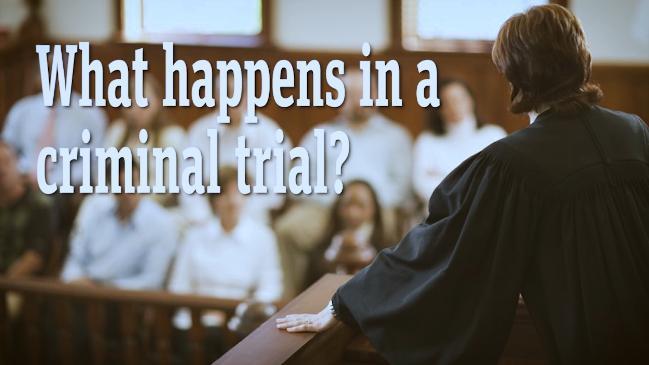High Court rulings expose Victoria’s sentencing mess, writes Norrie Ross
SENTENCING in Victoria is officially a mess. Years of bad law has meant thousands of criminals have received lower sentences than they should have for crimes like murder, incest, and rape. So what happens next, asks Norrie Ross.

Opinion
Don't miss out on the headlines from Opinion. Followed categories will be added to My News.
SENTENCING in Victoria is a mess. And it isn’t just the verdict of newspaper columnists, talkback callers and the Police Association.
In the space of less than two years the High Court has delivered three damning verdicts on Court of Appeal (COA) judgments that would make anyone wonder what the hell is going on at Victoria’s top court.
Related: Secret letters reveal duel between top judge, prosecutors
The substance of the three High Court rulings is a finding that the state’s judges have been obliged to sentence criminals for a variety of very serious offences using a set of rules mandated by the COA that are wrong in law.
These errors led to the High Court restoring a near-record sentence of a man who set his pregnant partner on fire and ordering the re-sentencing of a heroin importer and of a sex monster who impregnated his stepdaughter.

More worrying is that Australia’s highest court had to order the COA to abandon legal precedents it erroneously established in another six Victorian cases dating back to 2009.
In a stinging rebuke, the High Court said that even when the COA found sentences for a particular offence had been far too low they failed to act on that finding. In refusing to increase the sentence of the offender before them so as to avoid any “perceived unfairness”, they ignored the maximum penalty available and that offender’s moral culpability.
The High Court stated: “The duty is to impose a sentence that is appropriate in all the circumstances of the case. It is not consistent with that duty to permit a manifestly inadequate sentence to stand.
“The (six) earlier decisions of the Court of Appeal are wrong and are not to be followed or applied”.
A near-decade of bad law in Victoria has meant that thousands of criminals have received unjust and in most cases lower sentences than they should have for crimes like homicide, incest, rape, culpable driving, drug trafficking and serious assault.
No wonder the public has lost confidence in the justice system.
The sensitivity of the issue was illustrated in the extraordinary exchange of letters, exclusively revealed in the Herald Sun , between now-retired Chief Justice Marilyn Warren and the Director of Public Prosecutions, John Champion, SC.


The Chief Justice argued that the DPP’s office had misrepresented COA decisions in the most recent appeal to the High Court, a complaint that was dismissed after investigation by Mr Champion and an independent Queen’s Counsel.
When sentencing, judges take into account a large number of factors, including the maximum penalty set down by parliament, the impact on the victim, the nature and gravity of the offence, and current sentencing practice.
The COA’s major error, according to the High Court, was to elevate “current sentencing practice” to be the most important factor, meaning that judges could not increase sentences beyond the range set by previous cases.
Justice works both ways in sentencing. If a convicted person is given too harsh a sentence it should be corrected and if it is too lenient it should be corrected. And the body tasked with correcting an injustice is the Court of Appeal.
County Court judge Geoff Chettle last year spelled out the frustration felt by judges who were hamstrung by the COA’s “current sentencing practice” rulings.
In sentencing Facebook rapist Anjan Shrestha to six years with a minimum non-parole term of four years, Judge Chettle said: “Given that parliament has set a maximum penalty of 25 years for the offence of rape, it’s hard to justify any penalty less than double figures.
“However, fortunately for you, current sentencing practices constrain the sentence this court can impose.
“It’s not for me to say that the range of sentences for like offending is too low. That’s for the Court of Appeal to make any such statements, and indeed on other occasions they have said so.”

The problem was that although the COA did on other occasions say sentences for some offences were too low, as the High Court found they refused to take any practical steps to ensure they were increased.
An illustration of this was the case of Dalgliesh (a pseudonym) that prompted the exchange of letters between the Chief Justice and the DPP.
The High Court criticised the failure on a DPP appeal to increase a 3½ year prison term for Dalgliesh, who impregnated his 13-year-old stepdaughter, even after the COA agreed it was “manifestly inadequate”.
In their judgment, the High Court made a clear-headed observation that should have been blindingly obvious to the state’s appeal judges.
“To the extent that the sentencing judge imposed a sentence that was manifestly too low, it was the proper function of the Court of Appeal to correct that injustice,” the High Court stated.
“A manifestly inadequate sentence is a failure of the due administration of criminal justice.
“The only expectation that an offender can have at sentence is of the imposition of a just sentence according to law.”
So, what does all this mean? It means we have had the extraordinary situation where the COA has judged that sentences for particular crimes are too low, but through a tortuous process largely of its own making, has failed to do anything about it.
In effect, a string of its judgments dating back to the last decade have turned the possibility of increasing sentences into a philosophical debating point that is never resolved.
This led a clearly frustrated Chief Crown Prosecutor Gavin Silbert, QC, to complain to the High Court in the Dalgliesh appeal that the DPP had to be dragged “kicking and screaming” into these COA-mandated debating hearings and in 10 years nothing concrete had ever come from them.
He said that by using a comparison of the range of sentences imposed for the same offence as a guide to judges, the COA effectively indulged in “a form of algorithmic sentencing”.

“The effect of the practice has been, it is submitted, to subvert the sentencing discretion leading to the imposition of inappropriate sentences,” Mr Silbert said.
With that stinging criticism, is it any wonder that Victorians, facing an epidemic of gang violence, gun crime and home invasions, feel the justice system does not serve them?
Mr Silbert pointed out that the lack of movement on uplifting sentences had led State Parliament to try to remedy the failure by increasing maximum penalties for violent crime.
The latest example is the Andrews Government’s plan to increase to 20 years the maximum penalty for crooks who ram police or other emergency services vehicles.
Although the primacy of “current sentencing practice” has now been slapped down, does anyone believe — given the recent record — that an offender who rams a police car, injuring officers, will get anywhere near the maximum term, or that such a sentence would survive an appeal? And if not, then what’s the point of increasing the maximum penalty?
After all, another of the High Court rulings pointed out that the COA had failed to follow its own sentencing guidance.
In 2015, the COA slashed the jail term for ice user Yavaz Kilic, 22, who, while out on bail and under a Community Corrections Order, doused his pregnant girlfriend in petrol and set her ablaze.
Kilic told his victim: “You want to make my heart burn. Now you can burn, bitch.”
She lost her baby, spent five days in an induced coma, had to endure extensive skin grafts, and will suffer the effects for life.
Kilic, who pleaded guilty, was jailed for 15 years by a judge who said a message must be sent that a “war on women” by some men would not be tolerated.
Justices Robert Redlich and Simon Whelan cut the sentence to 130 months.
Last December, five High Court judges, bringing sanity to bear, said the appeal judges had erred by treating previous sentences, which were not comparable in any event, as imposing a sentencing range.

Kilic’s penalty was neither unreasonable nor plainly unjust, the High Court said, as the heinousness of his crime surpassed understanding and was in a class of its own.
They also pointed out that the COA had failed to follow its own 2004 ruling that offences as serious as Kilic’s were liable to attract upwards of 15 years’ jail.
In another error Victoria’s appeal judges also applied the state’s flawed “current sentencing practice” mandate to federal crimes.
Vu Lang Pham pleaded guilty in the County Court in October 2013 to one count of importing a marketable quantity of heroin. He was jailed for 8 ½ years with a non-parole period of six years.
But the COA President, Justice Chris Maxwell, and Justices Robert Osborn and Emilios Kyrou reduced that to six years with a four-year minimum.
In doing so, Justice Maxwell said NSW, Queensland and Western Australian sentences for offences involving similar quantities of drugs were substantially greater and ”well outside the range indicated by Victorian practice”.
But the High Court said that to prefer one state’s sentencing practices to sentencing practices elsewhere in the Commonwealth, or at least to prefer them for no more reason than that they are different, was contrary to principle and tended to exacerbate inconsistency, and so was ultimately unfair.
Sending Pham back for re-sentencing in November 2015 the High Court also pointed to a number of its own previous judgments that showed the approach of the COA was incorrect and should have been applied.
For Victorians, the important matter arising from this series of High Court decisions is: What happens next?
In theory, judges freed from the overarching constraint of current sentencing practice should now be able to impose sentences that are just, meet community expectations and, in serious cases, at least bear some resemblance to the maximum penalties set down by parliament.
The Court of Appeal now has clear High Court guidance on how it should approach cases where those principles have not been met.
Norrie Ross is a freelance journalist and media law educator. He covered courts in Victoria for the Herald Sun for nearly 25 years.


